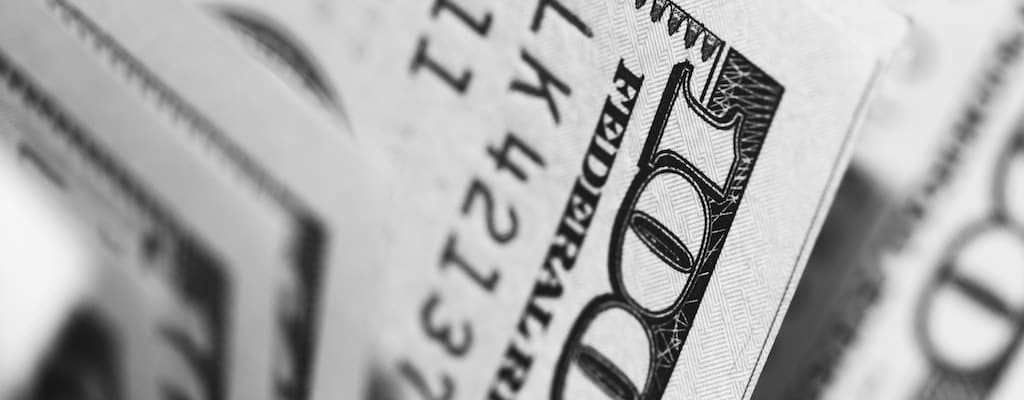break even: Idiom Meaning and Origin
What does ‘break even’ mean?
The idiom "break even" means to reach a point where the income or profit equals the expenses or costs, resulting in neither a loss nor a gain.

Idiom Explorer
The idiom "in the money" means to be in a financially successful or prosperous situation.
The idiom "in the black" means to be financially solvent or profitable, typically used to describe a business or organization. It signifies the state of having positive earnings, as opposed to being in debt or operating at a loss. This idiom is rooted in the convention of using black ink to represent profit on financial statements.
The idiom "happy medium" refers to finding a balance or compromise between two extremes or conflicting ideas.
The idiom "go halves" means to share the cost or responsibility of something equally with someone else.
The idiom "go halfsies" means to split the cost or share something equally between two people.
The idiom "go for broke" means to take a great risk or make a bold, all-out effort in pursuit of a goal, regardless of the potential consequences or failure.
The idiom "foot the bill" means to pay for something, often used when one person pays the entire cost of an expense or bill.
Unveiling Break-Even's Equation
Break even is an idiom that originated in the world of finance and business. It refers to the point where total revenue equals total expenses, resulting in no profit or loss. This phrase has permeated various aspects of everyday life, reflecting a fundamental desire for stability and equilibrium.
One interesting fact about the idiom break even is its origin in accounting terminology. It stems from the concept of a break-even point, which was introduced by economists and financial professionals in the early 20th century. A break-even point represents the volume of sales or production necessary to cover all expenses, without generating any net profit or loss.
The idiom break even has found its way into a broader range of contexts beyond just finance and business. It is frequently used in everyday speech to convey the idea of reaching a point where effort, investment, or risk is justified through balanced outcomes. This can apply to personal endeavors, professional projects, or even social interactions.
Another interesting aspect of the idiom break even is its flexibility in terms of grammatical usage. It can be used as a verb (to break even), adjective (a break-even point), or noun (achieving a break even). This versatility allows for its integration into various sentence structures and idiomatic expressions.
Furthermore, the concept of breaking even has become deeply entrenched in the cultural and economic landscape. It exemplifies the drive for stability and equilibrium within a dynamic and uncertain world. The idiom break even symbolizes the pursuit of balance, where risks and rewards are carefully weighed, and the outcome is neither a clear victory nor a devastating loss.
The idiom break even relates to the idiom "balance the books". This expression also comes from the world of finance and refers to the act of ensuring that all financial records are accurate and in order. It involves reconciling transactions, verifying balances, and making adjustments as needed. Just as breaking even signifies a point of equilibrium between revenue and expenses, balancing the books represents a state of financial accuracy and integrity.
Additionally, the idiom break even is connected to the idiom "draw even". This term is often used to describe a situation where two opposing forces or entities reach a point of equal status or strength. In the context of break even, drawing even can relate to the moment when revenues and expenses align, resulting in a balanced financial state. It signifies a state of equilibrium where neither party holds an advantage.
The idiom break even is also associated with the idiom "balance out". This expression is used to describe a situation where various elements or factors come together to create a harmonious or proportionate outcome. In relation to breaking even, balancing out can represent the achievement of equilibrium between revenues and expenses. It indicates a state where the different components of a financial equation align to create a stable and balanced result.
The idiom break even has its roots in finance and accounting, specifically referring to the point at which revenues equal expenses within a business context. However, its usage has expanded to convey a broader notion of reaching a balanced outcome or justifying an investment of effort without significant gain or loss. This idiom reflects a fundamental desire for stability and equilibrium in various aspects of life. Its widespread use and adaptability in both professional and personal settings make it a powerful and relatable expression.
Example usage
Examples of how the idiom break even can be used in a sentence:
- After months of losses, the company finally managed to break even this quarter.
- Even though the concert tickets sold out, the event organizers were unable to break even due to high production costs.
- The restaurant needs to sell at least 100 meals tonight in order to break even for the day.
More "Finance" idioms



